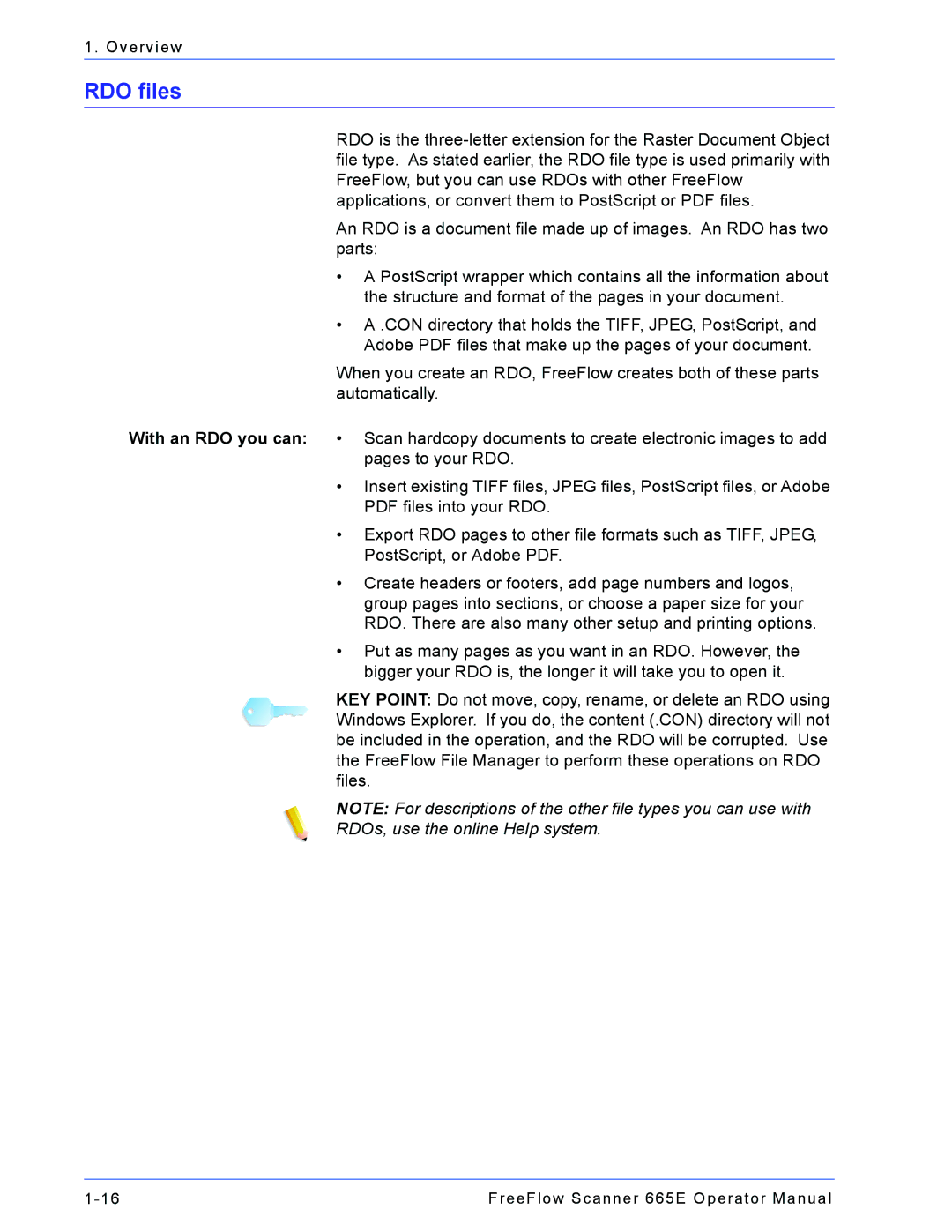
1. Overview
RDO files
RDO is the
An RDO is a document file made up of images. An RDO has two parts:
•A PostScript wrapper which contains all the information about the structure and format of the pages in your document.
•A .CON directory that holds the TIFF, JPEG, PostScript, and Adobe PDF files that make up the pages of your document.
When you create an RDO, FreeFlow creates both of these parts automatically.
With an RDO you can: • Scan hardcopy documents to create electronic images to add pages to your RDO.
•Insert existing TIFF files, JPEG files, PostScript files, or Adobe PDF files into your RDO.
•Export RDO pages to other file formats such as TIFF, JPEG, PostScript, or Adobe PDF.
•Create headers or footers, add page numbers and logos, group pages into sections, or choose a paper size for your RDO. There are also many other setup and printing options.
•Put as many pages as you want in an RDO. However, the bigger your RDO is, the longer it will take you to open it.
KEY POINT: Do not move, copy, rename, or delete an RDO using Windows Explorer. If you do, the content (.CON) directory will not be included in the operation, and the RDO will be corrupted. Use the FreeFlow File Manager to perform these operations on RDO files.
NOTE: For descriptions of the other file types you can use with
RDOs, use the online Help system.
FreeFlow Scanner 665E Operator Manual |
